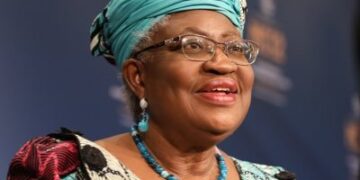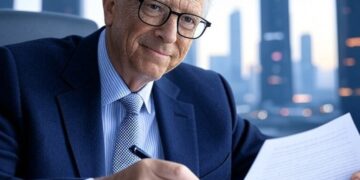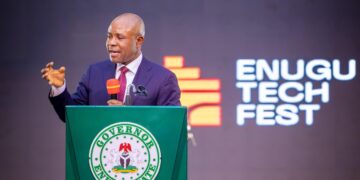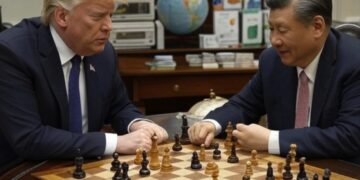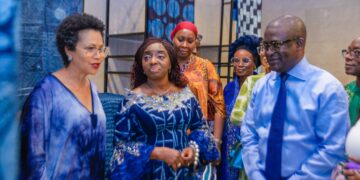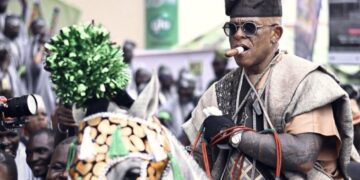In a dramatic twist in Nigeria’s ever-shifting political landscape, governors and legislators who recently abandoned their parties to join the ruling All Progressives Congress (APC) are reportedly grappling with regret. The catalyst? The meteoric rise of the African Democratic Congress (ADC), a reinvigorated opposition coalition that has sparked widespread enthusiasm among Nigerians ahead of the 2027 general elections. This emerging political force, led by heavyweights like former Vice President Atiku Abubakar and Labour Party’s Peter Obi, is being perceived as a formidable threat to the reelection bids of these defectors, potentially reshaping the nation’s political future.
The ADC’s Resurgence: A Coalition for Change
The ADC, originally formed in 2005 as the Alliance for Democratic Change, has undergone a remarkable transformation. Rebranded and revitalized, it has become the chosen platform for a powerful opposition coalition aimed at challenging President Bola Tinubu’s APC in 2027. The coalition boasts an impressive roster of political titans, including former Kaduna State Governor Nasir El-Rufai, former Rivers State Governor Rotimi Amaechi, and former Attorney-General Abubakar Malami, who recently made headlines with his defection from the APC.
This coalition is not merely a political maneuver but a movement claiming to fight for Nigeria’s soul. Leaders like Atiku and Obi have rallied around a shared goal of addressing the nation’s worsening economic conditions, rampant insecurity, and perceived governance failures under the Tinubu administration. The ADC’s messaging resonates with a populace frustrated by economic hardship, banditry, and what Malami described as “governance by propaganda.”
The coalition’s adoption of the ADC, an existing party with a foothold in Nigeria’s political structure, bypasses the arduous process of registering a new party. This strategic move, backed by former President Olusegun Obasanjo’s Coalition for Nigeria Movement, positions the ADC as a credible alternative to the APC and the Peoples Democratic Party (PDP). With key figures like former APC National Chairman John Oyegun and media mogul Dele Momodu joining the fold, the ADC is rapidly gaining traction as Nigeria’s potential main opposition force.
Defectors’ Regret: A Political Miscalculation?
The wave of defections to the APC in recent years, particularly in the 10th National Assembly, initially bolstered the ruling party’s dominance. As of June 2025, the APC’s membership in the Senate had swelled to 68 seats, with approximately 207 in the House of Representatives, largely due to defections from the PDP, Labour Party, and smaller parties. Notable defectors include Hon. Idris Salman from the ADC and Hon. Chris Nkwonta from the PDP, citing constituency pressures and internal party crises.
However, the ADC’s rise has shifted the political calculus. Social media posts on X reflect growing sentiment that these defectors may have misjudged the public mood. Nigerians, energized by the ADC’s promise of “real change,” are increasingly vocal about their support for the coalition. Political observers note that governors and legislators who jumped ship to the APC now fear a backlash from voters who view the ADC as a viable alternative. One X post boldly declared, “Those Governors that left PDP to join APC should be worried. They will have a viable opposition in ADC and they might be one-term Governors. Because this ADC will be a Tsunami.”
The ADC’s appeal lies in its ability to unite disparate opposition factions. Unlike the fragmented opposition in the 2023 election, where Atiku (PDP) and Obi (LP) split the vote, allowing Tinubu to win with just 37%, the ADC coalition aims to present a single presidential candidate in 2027. Analysts like Ben Kenneth argue that this unity could have secured victory in 2023, and the coalition’s current momentum suggests a stronger challenge ahead.
APC’s Response: Confidence or Denial?
The APC remains defiant, dismissing the ADC coalition as a group of “retired politicians without electoral value.” Tinubu ally Binta Garba Massi emphasized the party’s resilience, pointing to its success in unseating the PDP in 2015 as evidence of its staying power. “APC is still standing strong and waxing stronger,” she told DW, predicting another victory in 2027. The APC in Osun State has also refuted claims of defections to the ADC, asserting that it is instead gaining PDP members and maintaining an “impenetrable” structure.
Yet, political analyst Mallam Baba Yusuf cautions that the APC’s confidence may be premature. He argues that the current opposition’s approach lacks the strategic cohesion that enabled the APC’s 2015 victory. Unless the ADC refines its strategy, Yusuf believes it may struggle to make a significant dent. However, the coalition’s ability to attract high-profile defectors like Malami and Amaechi suggests it is already disrupting the APC’s dominance.
Impact on Reelection Prospects
The rise of the ADC poses a direct threat to defectors’ reelection chances. Governors and legislators who aligned with the APC to secure political relevance may now face energized constituencies rallying behind the ADC’s promise of justice, inclusion, and national renewal. The coalition’s focus on issues like economic hardship and insecurity resonates with young Nigerians and women, who are increasingly demanding representation and solutions.
Legal experts like Barr. Manzuma Issa highlights another risk: Nigeria’s constitution and Supreme Court rulings mandate that defectors lose their seats unless their party is in crisis. While some defectors cite internal party rifts, the ADC’s growing legitimacy could embolden legal challenges to their defections, further jeopardizing their political futures.
A Tsunami on the Horizon?
As the ADC coalition gains momentum, it is clear that Nigeria’s political landscape is at a crossroads. The enthusiasm surrounding the ADC, fueled by its high-profile leadership and focus on pressing national issues, has put APC defectors on edge. Whether this coalition can translate its momentum into electoral success remains uncertain, but its emergence as a “tsunami” threatens to upend the status quo.
For stakeholders, the message is clear: the 2027 elections will be a battleground of ideas, alliances, and voter sentiment. The ADC’s rise signals a hunger for change among Nigerians, and defectors who bet on the APC’s dominance may find themselves caught in a political storm of their own making.
Disclaimer: Information from X posts reflects public sentiment but is not conclusive evidence.







